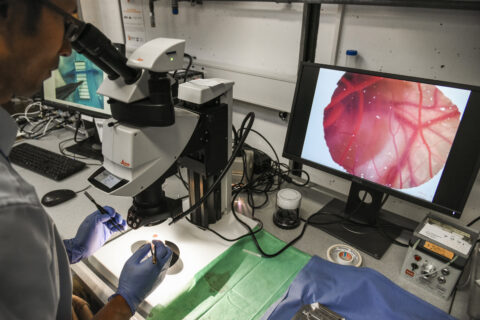New BMBF funded Research Project at IDC
The German Federal Ministry of Education and Research (BMBF) has approved the project „Innovative test platform for molecular communication and microsurgical training – fluorescence systems, novel prostheses and technologies“ with funding of more than half a million euros for the years 2024-2026. The working groups of Prof. Dr. Silke Härteis (Chair of Molecular and Cellular Anatomy, University of Regensburg), Prof. Dr. Thiha Aung (Faculty of Applied Health Sciences, Deggendorf Institute of Technology) and Dr.-Ing. Maximilian Schäfer (IDC, Prof. Dr.-Ing. Robert Schober, FAU) are delighted to be working together on this forward-looking, interdisciplinary project.
The aim of the project, which runs from April 2024 to 2026, is to develop an innovative test platform for molecular communication and microsurgical training. Through the use of fluorescence systems, novel prostheses and technologies, groundbreaking advances in medical research and training are to be achieved.
The project will investigate the use of the CAM model (Chorion-Allantois Membrane) in the microsurgical training of medical students and physicians using an innovative fluorescence system, modified vascular coupler systems and high-frequency ultrasound measurements. This model also serves as an alternative to animal experiments and is to be established as a test platform for innovative technologies and new sensor systems in the field of health monitoring.
The IDC researchers led by Dr. Maximilian Schäfer will contribute their molecular communication expertise to the project. The concepts developed at the IDC in Erlangen will be transferred to an in vivo model for the first time worldwide. The successful establishment of the CAM model as a test platform would be a groundbreaking success for the research field of molecular communication and an important step towards the realization of possible applications in the field of health monitoring and personalized medicine.


